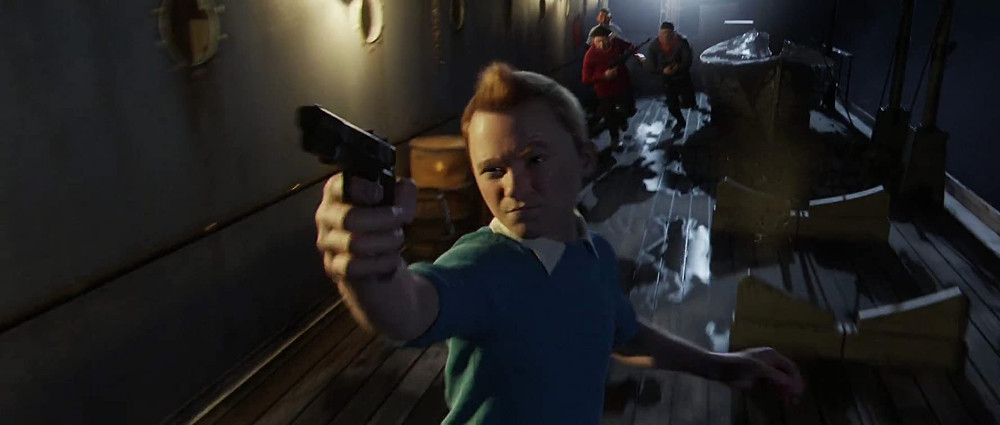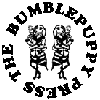'Billions of billious blue blistering fights scenes!'

The Adventures of Tintin: The Secret of the Unicorn
Just another empty Hollywood promise
January 6, 2012 —It's never a good thing when the best part of a movie is the cartoon that accompanies the opening credits. Sadly, such was the case with the first Hollywood film I have seen in a theatre in more than two years.
The Tintin books (the best of them, anyway) are among those rare childhood favourites that bear repeat visits as the years roll on. I've read all of the official albums, (most many times), the original black and white versions (including Tintin au pays des Soviets) that were later re-drawn for colour publication, and more than a few homages, rip-offs and admiring satires.
Hergé was a brilliant cartoonist, a children's story-teller with a keen ear for dialogue and wordplay, and a sharp eye for slapstick, who managed to transcend the genres in which he worked even as he (mostly) stayed within them. His bland hero, the boy reporter Tintin, was a blank slate surrounded by eccentric friends and dangerously crazed villains. The mystery and adventure was enough for smaller children, while the humour kept older readers coming back again and again.
Hergé's books were also very cinematic, and the trailer I saw for the film suggest that, this time, we might see that rare Hollywood adaptation that treated a movie's source material with the respect it deserved. I suppose I should have known better than to expect too much from Steven Spielberg's The Adventures of Tintin, but hope (as they say) springs eternal.
To be fair, I think it is safe to say that, by their own lights, Spielberg and company did treat the original comics with respect. If the film's backgrounds and style owe as to Max Fleischer's Superman cartoons as they do to Hergé's, the performance capture animation does a brilliant job of re-creating the cartoonist's realistic figures with the outrageously exaggerated faces, and the movie is rife with references to other adventures and characters in the long-running series — there is even an early in-joke featuring (I am almost certain) a doppelganger of Hergé himself as a flea-market caricaturist who sketches the movie Tintin as he appeared in the books.
Yes, the film looks good. The motion capture animation is well-done; the characters look great; and the 3D is perfectly adequate (though it never adds much to the goings-on. Can someone tell me if I'm missing out by having watched it at a retro-fitted flat screen cinema rather than one of those curved IMAX screens?). But pretty pictures, even in 3D, don't make a movie. The problem with this mediocre film lies not with the intentions of its producers, but with a Hollywood that has forgotten what story is.
The Adventures of Tintin provides no reason to believe that, however highly Spielberg regarded Hergé's art, he had any appreciation for his writing.
The original albums were dense as children's comics go, layered and complex, with careful pacing that balanced drama and adventure with characterization, and slapstick humour with all manner of wordplay (and also, a coherent world that grew more sophisticated with each story). Despite that richness, The Adventures of Tintin is (loosely) based not on one, but on three of the original albums and, more, re-makes a minor character into a major villain with his own back-story and (nonsensical) motivations, thus making something already too complicated even more so.
And yet ... despite that complicated background, there isn't much there there in The Adventures of Tintin. The mystery is confusing but unconvincing; the characterizations are mostly gone and all of Hergé's brilliant pacing has vanished. Instead, we are "treated" to fight scenes and chase scenes, followed by more fights, more chases, and more chases and more fights, ad blistering nauseum.
If what you ask of a night out at the movies is a competently constructed series of thematically pointless action set-pieces, The Adventures of Tintin might be what you're looking for.
But me? If I want Tintin, I'll pull out of the books for a dose of the real thing. And if I want a cartoon that will fill my eyes with beauty while also respecting my brain, I think I'll re-watch something by Hayao Miyazaki.

Add new comment